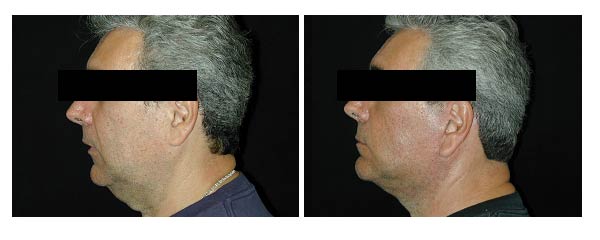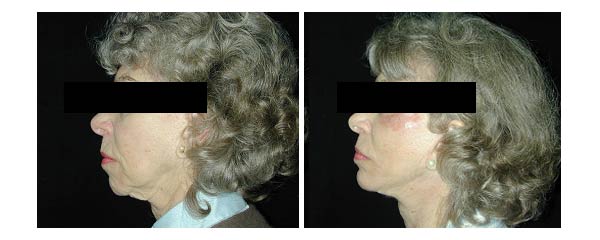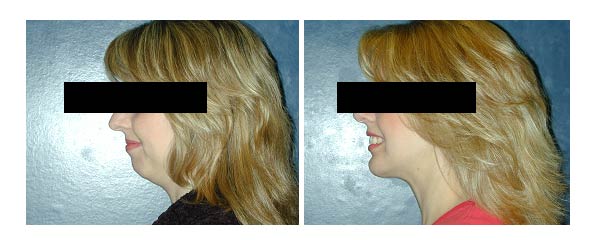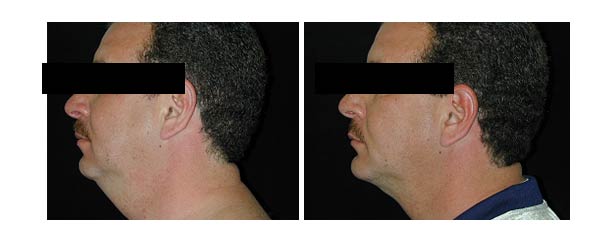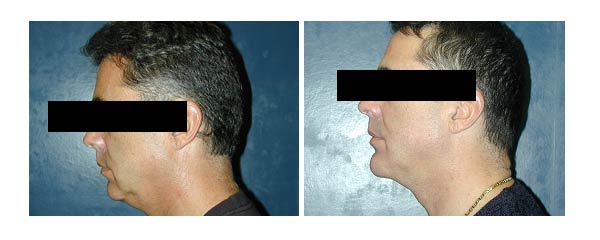What is Chin Augmentation?
Chin augmentation using an implant is the most common procedure for the use of facial implants. Facial implants are designed for augmentation, reconstructive or rejuvenative purposes. The implants are available in various sizes and styles for the chin, jaw, nose and cheek to fit your individual needs. The implants add or restore contour and/or proportion to the face. For example, chin augmentation improves the lower face aesthetics by often yielding an improved jaw-line appearance and improves facial harmony with the mid and upper face. It is not uncommon for an individual to believe that their nose is out of proportion; too large for their face whereas, the problem is often a small or retrussive chin that causes the facial disharmony.
Consulting with Dr Mezrow:
During the consultation, Dr. Mezrow will ask you about your particular concerns regarding your face. This will help determine your expectations and determine whether they can be realistically achieved.
After obtaining a comprehensive medical and surgical history, Dr. Mezrow will perform an examination of your face and perform an assessment of your dental occlusion. Malocclusion, in which the upper and lower teeth do not align properly, can indicate a retrussive jaw attributing to facial disharmony, which may require other surgery to improve facial proportion.
How is the procedure done/Where will I have scars?
Facial implant surgery is performed as an outpatient under usually local anesthesia. The procedure entails making a small incision near where the implant will be placed, for example chin augmentation either an incision is made under the chin or inside the mouth at lower gum-lip junction. A space or pocket is created, the implant is positioned and the incision is closed. The procedure typically takes approximately 1-2 hours to perform. Most patients recover within 1 to 2 hours after surgery and are discharged home. It is important to arrange for someone to drive you home after surgery and to stay with you for at least the next day or two.
It is not uncommon for facial implant surgery to be performed at the same time as a facelift, nose or other cosmetic procedures.
Check out Before and After photos of our clients
What are the potential complications?
Fortunately, significant complications from facial implant surgery are infrequent, however, all surgery has risks. Dr. Mezrow will discuss with you, the risks, benefits and alternatives and answer all your questions
Some potential complications include infection that may require implant removal with replacement later, bleeding, implant shifting or misalignment that require additional surgery to reposition the implant, asymmetries, bone alteration, alteration in sensation and poor scarring. A complication, which delays healing and prolongs recovery, is more common in diabetic patients and those who smoke. Preoperative and postoperative instructions will be given to you by Dr. Mezrow in attempt to reduce the likelihood of complications and make you as comfortable as possible with the whole process. Smokers will be instructed to stop smoking 4-6 weeks prior to surgery and not resume smoking to reduce the risk of delayed healing, wounds, infections and compromised outcome. Aspirin, anti-inflammatory medications as well as agents that cause bleeding should be discontinued two weeks prior to surgery (or as otherwise instructed by Dr. Mezrow and your primary physician) to reduce the likelihood of bleeding.


